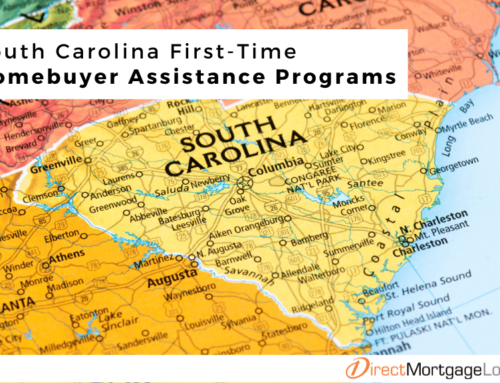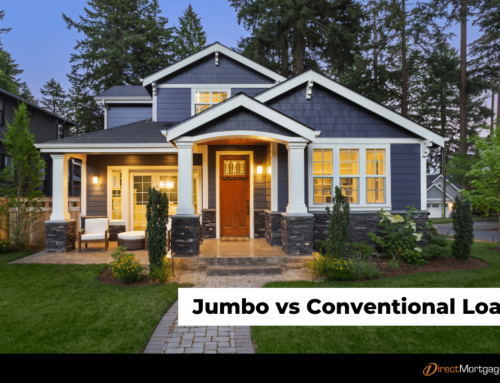Whether you’re looking to consolidate debt, fund renovations, or cover major expenses, a second mortgage loan could be the solution for you. In this article, we will discuss what second mortgages are, how they work, the requirements, and the pros and cons associated with them.
Subscribe to our blog to receive notifications of posts that interest you!
What is a second mortgage?
A second mortgage allows homeowners to tap into the equity they’ve accrued in their property. Equity represents the difference between your home’s current market value and the outstanding balance on your initial mortgage. By obtaining a second mortgage, you are essentially borrowing against this accumulated equity, receiving either a lump sum or a line of credit. Home equity loans and home equity lines of credit (HELOCs) are typically the two most common types of second mortgages.
How does a second mortgage work?
When you take out a second mortgage, you are using your home’s equity as collateral to secure the loan. This means that if you fail to make payments, the lender could take possession of your home. Unlike refinancing, which replaces your existing mortgage with a new one, a second mortgage creates a secondary lien on your property; meaning you will have two separate loans to pay off, each with its own monthly payments.
Second Mortgage Requirements
The eligibility requirements vary depending on the type of second mortgage and lender you choose. Nonetheless, there are some general requirements to keep in mind. To take out a second mortgage, you typically need built-up equity in your home, usually around 20%. Keep in mind, you can only borrow a portion of this equity based on your home’s value and remaining first mortgage balance.
Second Mortgage vs Refinance
When considering a second mortgage versus refinancing, it’s important to understand the key differences between the two. A second mortgage involves taking out an additional loan with different terms and monthly payments on top of your first mortgage. This could be useful for specific needs such as home improvements or debt consolidation.
On the other hand, refinancing means replacing your current mortgage with a completely new one, often with different loan amounts and terms. This could help you secure a lower interest rate, change the loan duration, or switching from a variable interest rate to a fixed rate.
Different Types of Second Mortgages
There are two main types of second mortgages that allow you to tap into your home’s equity: home equity loans and home equity lines of credit (HELOCs). Let’s explore how each option works:
Home Equity Loan
Home equity loans allow homeowners to borrow money using the equity they have in their property as collateral. The loan amount is based on the difference between the home’s current market value and the outstanding mortgage balance. Homeowners receive a lump sum of money and make monthly payments until the loan is fully repaid. However, if they fail to make payments, the lender could foreclose on the property to recoup their funds.
Home Equity Line of Credit (HELOC)
A home equity line of credit (HELOC) is a type of second mortgage that allows homeowners to borrow money using the equity in their homes. With a HELOC, borrowers can access funds up to a certain credit limit, and they only need to repay the amount they use. Think of a HELOC as a credit card. Homeowners have access to use the funds as they wish, rather than taking out one large lump sum.
To qualify, homeowners must have enough equity in their property, meaning they owe less on the mortgage than the home is currently worth. As you repay the amount borrowed, the available credit increases, providing an ongoing source of funds for various financial needs.
Are second mortgage rates higher?
Second mortgage interest rates are generally higher than first mortgage interest rates. This is because the lender is taking a greater risk by providing an additional loan on the property. If you can’t pay off your mortgage and your property is foreclosed, the second mortgage is at a greater risk of not being paid in full. In return, this is why the interest rates are higher.
Also, it’s important to mention that with a Home Equity Line of Credit (HELOC), the interest rates are variable, not fixed. This means they can fluctuate, potentially leading to higher payments in the future. Nevertheless, a second mortgage could still be a good option for consolidating credit card debt, as the interest rates on credit cards are generally higher than mortgage rates.
Pros And Cons Of Second Mortgages
If you are considering a second mortgage, carefully review the pros and cons to determine if this option is right for you.
Second Mortgage Pros
- Access your home’s equity: A second mortgage could help you tap into the value your home has gained over time. This could be helpful for funding big expenses.
- Flexible use of funds: There are typically no restrictions on how you can use the money from a second mortgage.
- Potentially lower interest rates: Consolidating debt with a second mortgage could offer lower rates than credit cards.
Second Mortgage Cons
- Risk of foreclosure: If you can’t repay the second mortgage, you could lose your home.
- Closing costs: Be prepared for fees associated with setting up a second mortgage.
- Eligibility requirements: You may not qualify for a second mortgage if your home’s value isn’t high enough or if you don’t have enough equity built up.
How To Get A Second Mortgage Loan
The steps to obtain a second mortgage are similar to the process of getting your first mortgage. These steps may vary depending on your lender, however, here are the general steps:
- Application: Submit an application with details about your home’s value and your financial situation.
- Approval: The lender appraises your home to determine your equity and approves the loan amount based on that value and your specific financial situation.
- Closing: Once approved, you’ll finalize the loan details and pay closing costs, like what you experienced with your first mortgage.
- Repayment: After everything is finalized, you’ll begin making monthly payments that cover both the principal (original loan amount) and interest on the second mortgage.
How To Find Second Mortgage Lenders
Direct Mortgage Loans offers several types of second mortgages, including home equity loans and home equity lines of credit (HELOC). If you’re looking to learn more about which option is best for you, speak with one of our expert second mortgage lenders.
Second Mortgage Loan FAQ’s
Is a second mortgage a good idea?
A second mortgage could be a good idea depending on your goals and specific situation. Here are a few situations where taking out a second mortgage could be beneficial:
- Consolidating Debt: If you have high-interest debt, such as credit cards, a second mortgage could offer a lower interest rate. This could potentially saving you money in the long run.
- Funding Home Improvements: If you are considering major repairs or planning to renovate your kitchen or bathroom, a second mortgage could provide the necessary funds. Additionally, these renovations could potentially increase the value of your property in the long term.
- Covering Large Expenses: Second mortgages could help finance major expenses like education costs or medical bills.
How much equity do I need for a second mortgage?
To qualify for a second mortgage, the requirements vary depending on the lender. However, many lenders prefer that you have 20% equity in your home. You can typically borrow up to 85% of your home’s value, minus your current mortgage debts.
Does a second mortgage hurt your credit?
When you apply for a second mortgage, it could have some impact on your credit score. The application triggers a hard inquiry on your credit report, which could cause a slight dip in your score. However, in the long run, maintaining a clean payment history on your mortgage can benefit your credit score more than an inquiry might hurt it from a second mortgage.
Can you refinance a second mortgage?
If you have a substantial amount of equity in your home, you could refinance to pay off your second mortgage. In this scenario, the refinance loan would replace both your first and second mortgage, allowing you to make only one monthly payment instead of two.
How many HELOCS can you have?
Technically, there is no limit on the number of Home Equity Line of Credits (HELOCs) you can have at the same time. If you have enough equity in your home, and meet the lender’s eligibility requirements, you could take out more than one HELOC. However, lenders may have higher credit score requirements and offer higher interest rates due to the increased risk involved.
What is a closed end second mortgage?
A closed end second mortgage is a loan with a fixed interest rate and a set repayment term, typically 10 or 30 years. Unlike a Home Equity Line of Credit (HELOC), you receive the entire loan amount in one lump sum instead of accessing it over time. This can be a good option for borrowers who are uncomfortable with fluctuating interest rates, or who want a predictable monthly payment.
By refinancing your existing loan, total finance charges may be higher over the life of your loan. The availability of funds or the ability to consolidate debt is dependent on your current home equity. Rates are subject to change and may be higher or lower than your current rate. Eligibility and approval are subject to the completion of an application and verification of home ownership, occupancy, title, income, employment, credit, home value, collateral, and underwriting requirements. Direct Mortgage Loans, LLC NMLS ID# is 832799 (www.nmlsconsumeraccess.org). Direct Mortgage Loans, LLC office is located at 11011 McCormick Rd Suite 400 Hunt Valley, MD 21031.






Leave A Comment
You must be logged in to post a comment.